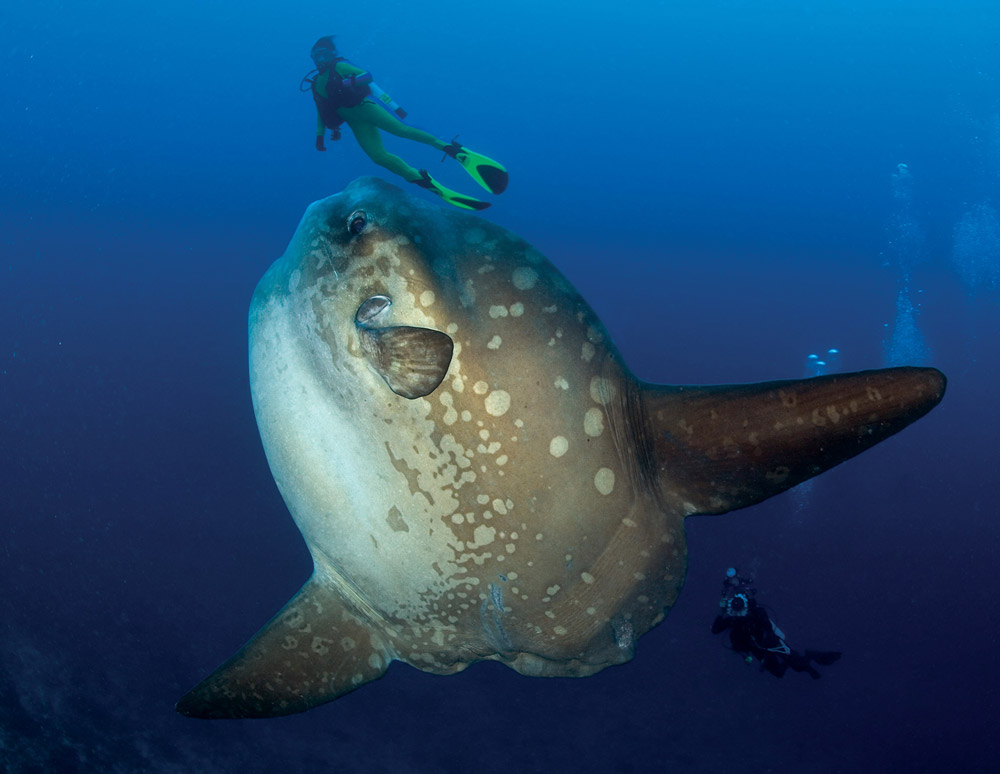The Mola Mola, which looks like a prehistoric shark that has lost its tail, is undoubtedly one of the most bewildering fish swimming our oceans waters. They are a creature of extremes and mysteries. Here are fascinating facts about the ocean sunfish that might make them seem like the world’s weirdest fish.

- Mola Mola is actually the scientific name of the ocean sunfish
Its closest relatives are the puffer fish and triggerfish. - They love to sunbathe
After diving the deepest, darkest parts of the ocean to hunt for prey, Mola Mola spend half the day basking in the sun near the surface of the water to re-heat their bodies and aid digestion. They may look like they’re playing dead if you’re fortunate enough to spot them in the wild. That’s because ocean sunfish are often seen lying on their sides at the surface, sometimes flapping their dorsal fin. - They are prone to infestation by parasites
The Ocean Sunfish can harbor some 54 species. Interestingly, they may be at the surface to attract seabirds from above or fish from below to clean their skin of parasites. - They can weigh more than a car
The average ocean sunfish is 10 feet long and weighs 2200 pounds. However, the largest ocean sunfish weighed 2.5 tons, which is comparable to an SUV, making them the world’s largest bony fish. - They lay millions of eggs
Sunfish can lay up to 300,000,000 eggs at once, more than any vertebrate. - They can dive up to 2600 feet
They generally hang out at depths of 160 to 650 feet, but can go much deeper on occasion. - They were an acceptable form of tax payment in 17th century Japan
During the 1600s and 1700s, Mola mola was used as payment for taxes by Japanese shoguns. - In German, they are called ‘swimming heads’
Schwimmender Kopf in German means swimming head, and the Polish name for sunfish is samogłów, which means ‘head alone.’ - The ocean sunfish uses its modified dorsal and anal fins for agile propulsion, making up for what it lacks. A tail.
- They are classified as vulnerable to extinction – the same level as polar bears, cheetahs, and giant pandas.
- They are not dangerous to humans
Despite its size, the ocean sunfish are harmless to humans. They are not considered a good eating fish in most places, hence their biggest threats are being hit by boats or being caught in fishing gear.
Have you witnessed these interesting creatures in the wild? Dive with us and share your experience!



